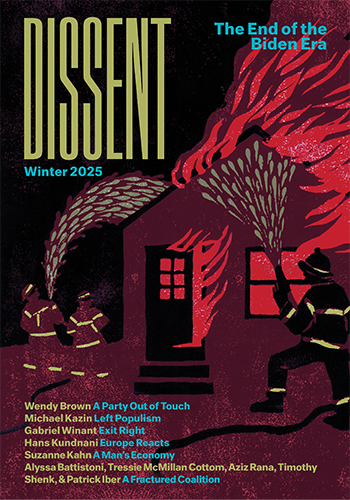Torture as a Growth Experience: Zero Dark Thirty
Torture as a Growth Experience: Zero Dark Thirty

If you go to Metacritic and look up the reviews of Zero Dark Thirty, you’ll come away with the impression that it’s a masterpiece. It has a “metascore” of 95, signifying “universal acclaim.” The New York Times called it “unexpectedly stunning, at once bold and intimate.” Rolling Stone said it as “the knockout punch of the movie season.” Salon called it a “sweeping and magnificent work of cinematic craft.”
After the movie reviewers had had their say, less favorable responses began to be heard from other quarters. In his op-ed column in the New York Times, Frank Bruni wrote that “by the movie’s account, [torture] produces information vital to the pursuit of the world’s most wanted man. No waterboarding, no Bin Laden: that’s what Zero Dark Thirty appears to suggest.” In the New Yorker, reporter Dexter Filkins wrote that director Kathryn “Bigelow maintains that everything in the film is based on first-hand accounts, but the waterboarding scene, which is likely to stir up controversy, appears to have strayed from real life.” Jane Mayer, the author of The Dark Side: The Inside Story of How the War on Terror Turned Into a War on American Ideals, added her voice, as did the tireless civil libertarian Glenn Greenwald, and finally Senators Dianne Feinstein, Carl Levin, and John McCain addressed a letter to Sony Pictures, the film’s distributor, calling the film “grossly inaccurate and misleading.” They wrote that “the movie clearly implies that the CIA’s coercive interrogation techniques were effective in eliciting important information related to a courier for Usama Bin Laden. We have reviewed CIA records and know that this is incorrect.”
Bigelow and her screenwriter, Mark Boal, have offered a nimbly two-pronged defense of the movie. On the one hand, they say it was based on eyewitness accounts. “What we were attempting,” Bigelow told Filkins, “is almost a journalistic approach to film…I felt we had a responsibility to be faithful to the material.” On the other hand, they say that it doesn’t matter if it strayed from the truth. “It’s a movie, not a documentary,” Boal said in the same article.
Bigelow addressed these questions again an op-ed in the Los Angeles Times on January 15. “Those of us who work in the arts know that depiction is not endorsement. I think Osama bin Laden was found due to ingenious detective work. Torture was, however, as we all know, employed in the early years of the hunt. That doesn’t mean it was the key to finding Bin Laden. It means it is a part of the story we couldn’t ignore.”
If you finally see the movie after all this, you’ll find it astonishing that anyone has doubted whether it’s pro-torture. It’s like doubting whether an Esther Williams movie is pro-water. Torture in this movie is simply the medium through which information is found. The “ingenious detective work” that Bigelow speaks of consists almost entirely of sifting through information obtained through torture. One detainee provides information after being softened up by torture; another provides information because he says he doesn’t want to be tortured again. Scene after scene carries the message not only that torture works, but that it’s the only thing that works. Late in the movie, after the newly inaugurated Barack Obama has made the practice illegal again, a CIA agent laments that the agency no longer has a reliable means of gathering information. The movie gives us no reason to think that he’s doing anything other than describing things accurately. Once its right to torture was taken away, the movie tells us, the CIA was reduced to working in the dark.
During all the debates around the movie, a side-controversy has arisen, between people who deny that torture elicited any information at all during the hunt for bin Laden and people who say that it did yield some information that was of use. This is an irrelevance. The argument against torture isn’t that it never “works.” The argument against torture is that it’s wrong. Zero Dark Thirty abuses the truth in presenting torture as a reliable means of gathering information from prisoners, in presenting torture as virtually the only reliable means of gathering information from prisoners, and in presenting a fictional world in which torture is so necessary that absolutely no one on the ground objects to it. (In reality, during the Bush administration, many in the military and the intelligence community were objecting fiercely.) The movie is clearly telling us that although torture was unpleasant, there was no alternative to its use.
In an article in the New Yorker in 2007, Mayer chillingly documented the way that the normalization of torture in TV shows like 24 had made the American public consider the practice more acceptable. You could make the case that Zero Dark Thirty is our most pro-torture artifact yet. 24 was an eight-year advertisement for the “ticking time bomb” defense of torture; Kiefer Sutherland’s Jack Bauer was always shooting people in the kneecaps to make them give up the location of a bomb that was set to go off just before the next commercial. But compared to the crude flatness of Zero Dark Thirty, 24 exhibited a moral complexity worthy of George Eliot. 24 at least gestured in the direction of the idea that torture destroys the character of the torturer: by the end of the series, Bauer was a shattered figure, good for little except doing harm. In Zero Dark Thirty, by contrast, the head torturer is a mellow dude, treating his detainees with a rough good humor except during the moments when he gets fed up and starts waterboarding them. Midway through the movie he transfers to a desk job in Washington, complaining of burnout, but the burnout seems pretty mild. His complaint is played for laughs—he says he’s seen too many guys naked. He might as well be a harried schoolteacher in Welcome Back, Kotter, complaining about the schoolboy hijinks he’s endured too long.
Early in the movie, when the heroine, Maya, played by Jessica Chastain, observes her first torture session, she appears to get a little flustered, but she recovers quickly, and soon she’s ordering people to be tortured herself. This is probably the only moment of character development in the movie. It’s only after she sheds her prissy inhibitions that she becomes fit for the job. Torture as a growth experience.
Some admirers of the film have made the case that a film can be morally deficient yet remain a masterly work of art. This may be true, but it’s hard to see how it applies to Zero Dark Thirty. Despite all the hype, it’s a pedestrian movie, filled with clichés, bad casting choices, and other miscues. Where to begin…?
A bunch of CIA agents set up a meeting in the desert with someone whom they believe to be a valuable informant, and as his station wagon slowly approaches, they jump up and down like five-year-olds at a birthday party. They might as well be wearing red shirts. They’re the only people in the movie theater who are surprised when the station wagon blows up.
After Maya, sure that she’s found Bin Laden’s hideout, goes to Washington to make her case to the head of the CIA, he strides into the meeting room, and we see that it’s James Gandolfini. Every member of the viewing audience is thus taken out of the scene as we think to ourselves, “Hey! That’s Tony Soprano!” (When Gandolfini is given time to build a role, he can be a remarkable actor, but his presence here is just a clumsy piece of stunt casting.)
When the raid on Bin Laden is finally authorized, Maya has to persuade a group of grizzled Navy Seals that she’s not sending them on a wild goose chase, so she gives them a little talk that begins, “There are two narratives about the location of Osama bin Laden…” After this she has them in the palm of her hand, presumably because of Navy Seals’ well-known weakness for narrative theory.
In the last shot of the movie, after Bin Laden has been assassinated, Maya sits alone and cries silent tears. Why is she crying? Because she’s thinking about the unarmed women who were killed in the raid? Because she’s remembering the victims of 9/11? Because the hunt that’s dominated her life for ten years is finally over? Because she’s suddenly realized that because of the way the screenplay was written, she has no identity, and is therefore doomed to disappear into the void that awaits under-imagined fictional characters? Who knows? The movie gives us no clue about why she’s crying, but it seems very deep.
The entire structure of the movie is a cliché, with the lone-wolf investigator facing off against an army of pointy-headed bureaucrats who try to tie her up in red tape. People who followed the news might have thought that that the search for Bin Laden was reopened by Barack Obama, but in keeping with the tired tropes of this kind of movie, the intrepid Maya was the only one who really wanted to get it done.
A word about Chastain’s performance. She’s already won a Golden Globe award for the role and been nominated for an Oscar, but it’s hard to see why. Chastain is said to be a wonderful actress, but nothing that she’s called upon to do in this movie brings that out. She’s expressionless. The essence of the character is that she’s expressionless. She’s determination personified, and nothing else. The other day I caught a few minutes of the movie Cast Away, in which Tom Hanks, marooned on a desert island, makes friends with a volleyball named Wilson. If Chastain deserves an Academy Award for her performance, Wilson deserved one too.
It’s notable that most of the reviewers who find the movie a masterwork don’t really point to anything masterly about it other than that it’s “taut” and “engrossing.” You would think that in order to be considered great, a work of art would have to provide an experience that’s morally or intellectually or emotionally complex. But there’s no complexity in Zero Dark Thirty. It’s cops and robbers, cowboys and Indians; when Muslims appear in the movie, they’re either hiding information about Bin Laden or blowing people up. Zero Dark Thirty has often been compared to the TV show Homeland, but Homeland, as cartoonish as it gets at times, is in a different league. Homeland shows that terrorism has many faces, and that a drone strike that kills civilians in Basra is just as much an act of terror as a bombing that kills civilians in D.C. The much more simple-minded Zero Dark Thirty is closer in form to a TV police procedural, which starts with a crime and shows us how the investigators bring the criminal to justice. Zero Dark Thirty starts with the crime of 9/11 (never even hinting at the idea that the conflict between the United States and Islamic radicalism has deep and tangled roots), and shows us how the investigators bring the criminal…well, they never do bring him to justice, do they? They just kill him. The decision to ignore due process is another of the complexities of the story that the film declines to explore.
The question of whether a movie can be great while glorifying something morally repugnant—it is an interesting question, but more interesting than that is the question of what it means that the movie’s fans have brought it up with such ease. We can all think of examples of morally reprehensible movies that are widely considered great—Birth of a Nation and Triumph of the Will are the two that people always mention. But these movies have been rendered innocuous by time. If a modern-day director, no matter how talented, were to put out a movie glorifying slavery or Nazism, it’s hard to imagine that any film critic would care to make the case that it was great despite its worldview. A movie whose hero was putting Jews to death in the gas chambers wouldn’t inspire reviewers to undertake the exercise of distinguishing between its ideology and its artfulness. There’s a moral line that critics wouldn’t cross. But there no longer seems to be a moral line preventing us from finding greatness in a movie that endorses torture.
Of all the ways in which our political culture has changed since 9/11, the widespread acceptance of torture may be the most profound. Before America went haywire, many of us would have imagined such a change impossible. We were a people who didn’t torture—whether or not this has ever been completely true, it was a bedrock element of our idea of ourselves.
Zero Dark Thirty, uninteresting as a film, is notable as a symptom of the damage done to our sensibilities by the “War on Terror.” The fact that so many journalists and historians and elected officials have condemned the movie’s distortions is a welcome sign.




